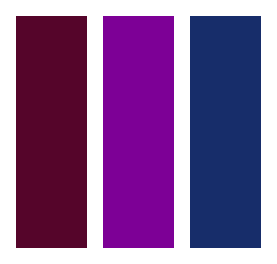Color
Color is a powerful brand signal. So, much like us, our palette is energetic, strong and defined. A series of grouped hues integrates into one cohesive palette. The brand achieves more range through pairings from the light palette, the medium palette, the dark palette and the core body text palette.
Download color palette for AdobeHow to use the Adobe Swatch Exchange (.ase):
1) Download the appropriate .ase file.
2) Start a new file and open the Swatches window.
3) Click on the menu button in the top right corner
4) Select open swatch library, then click new library.
5) Navigate to the bixal color palette .ase file and open it. Now you should have a new swatch window with all of your Bixal colors.
View this video tutorial to see how to open .ase files. for more guidance.
-
The Dark Palette

The dark palette amplifies the maturity and confidence of the Bixal brand. The dark palette should be paired with either light or medium hues, and should be offset with white body text.
-
The Medium Palette

The medium palette includes a few of the most striking tones in the overall color library. The medium palette may be paired with either light or dark palette hues, and should be offset with white body text.
-
The Light Palette

The light palette brings a sense of approachability and delight to the overall color library. The light palette should be paired with the dark palette for contrast, and should be matched to black body text.
Bixal Orange
hex: #FDA305
PMS coated: 137 C
PMS uncoated: 123 U
Bixal Green
hex: #DEEC1E
PMS coated: 396 C
PMS uncoated: 396 U
Bixal Light Blue
hex: #BEE9F6
PMS coated: 7457 C
PMS uncoated: 7457 U
Bixal Teal
hex: #06C5BC
PMS coated: 3262 C
PMS uncoated: 3262 U
Bixal Red
hex: #E02F00
PMS coated: 485 C
PMS uncoated: 2347 U
Bixal Maroon
hex: #55052A
PMS coated: 7421 C
PMS uncoated: 7421 U
Bixal Purple
hex: #7D0096
PMS coated: 2602 C
PMS uncoated: 2592 U
Bixal Navy
hex: #172D6A
PMS coated: 294 C
PMS uncoated: 280 U
Color pairings and accessibility
The Bixal palette is dynamic and flexible. There are a series of recommended configurations of the palette to ensure accessible and eye-catching pairings that most effectively bring the Bixal brand to life. The color combinations below are compliant to AA and AAA contrast requirements for text and background.
-
Aa
text: light-blue
background: maroon -
Aa
text: green
background: maroon -
Aa
text: orange
background: maroon -
Aa
text: teal
background: maroon -
Aa
text: light-blue
background: navy -
Aa
text: green
background: navy -
Aa
text: maroon
background: light-blue -
Aa
text: navy
background: light-blue -
Aa
text: maroon
background: green -
Aa
text: navy
background: green -
Aa
text: maroon
background: orange
Color pairings for bold or large text only
-
Aa
text: white
background: purple -
Aa
text: light-blue
background: purple -
Aa
text: green
background: purple -
Aa
text: orange
background: purple -
Aa
text: teal
background: navy -
Aa
text: orange
background: navy -
Aa
text: maroon
background: teal -
Aa
text: navy
background: teal -
Aa
text: purple
background: green -
Aa
text: purple
background: light-blue -
Aa
text: navy
background: orange
Color no-go's
-
Aa
text: purple
background: red -
Aa
text: light-blue
background: red -
Aa
text: red
background: navy -
Aa
text: red
background: maroon -
Aa
text: red
background: light-blue
Primary, secondary and tetriary colors
Bixal has a robust color palette, but no more than two brand colors should be used at any given time. Black or white may be used as a tertiary color in some instances. For example, a PowerPoint presentation can utilize many colors, but there should only be two per slide.
Primary color: This will be the header text and the monogram when the monogram is being used and should match the secondary color according to the accessibility guide.
Secondary color: This will be the background and should match the primary color according to the accessibility guide.
Tertiary Color: This can be black or white only and can be for used for additional text or small details. Such as disclaimers, fine print, quote credits etc.
